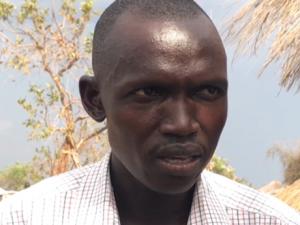
By David Hunter
People living in Northern Ireland are helping to tackle a growing ‘refugee crisis’ through generous donations.
In the past two years almost nine hundred refugees fleeing war in Syria and surrounding countries have moved there under a Government re-settlement programme.
Many of them were families with young children, and regularly feature in the headlines for their positive integration to Northern Ireland.
However, the extent to which people support those effected by the global crisis has an even further reach.
Q Radio’s travelled to Uganda with local charity Trocaire, to see how it’s supporting those fleeing conflict in some of the world’s most challenging conditions.
LISTEN: Q Radio's David Hunter speaks to the community leaders helping to resolve issues in the world's largest refugee camp.

IMAGE: Trocaire - Refugee's que for water in the Bidi Bidi settlement.
The small nation has accepted more than 1.4Million refugees in recent years from neighbouring African countries which are divided by war.
In Yumbe, Northern Uganda, lies the Bidibidi refugee settlement. It’s classed as the world’s largest refugee camp and currently has around 287,000 residents. Most of the people living there are fleeing conflict between Government forces and rebels in the bordering country of South Sudan.
In less than 24 months the Government has had to transform traditional village sites into a camp which can accommodate homes, businesses, farmland, schools and medical centres.
It’s been divided into five zones, each with elected ‘community leaders’ and district commandants who act almost like a district councillors. They’re heavily involved in the contribution made by aid agencies on the ground, including those supported by Trocaire.
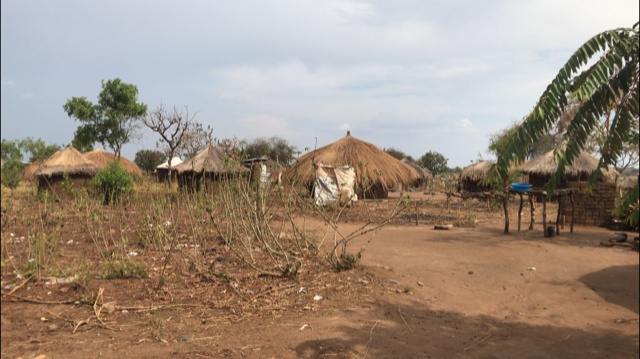
IMAGE: Refugees are given small plots of land to build homes in Bidi Bidi
Anyone can be a refugee
Leader, Joseph Taban was a high ranking Civil Servant in South Sudan before he hatched a secret plan with his family, and fled the country on a motor bike during his lunch break.
The 35-year-old said “It has been very helpful. Many of our young people have travelled outside the settlement to learn agriculture and farming. They’ve been providing tools, seeds and other materials. They’re also providing help to families and encouraging ‘peace committees’ which resolve conflicts inside the camp.”
Joseph feared he would be killed if the Government suspected he may be about to break rank and flee the country.
He organised to travel separately from his family in-case he was caught, and met them on the Ugandan border several days later.
Day two of coverage from my recent trip to Uganda with @trocaire . Former Civil Servant Joseph Taban tells us why he left his high ranking job in South Sudan as conflict escalated. He’s now working to better the lives of fellow refugees. @qnewsdesk https://t.co/A5YWDthMMG pic.twitter.com/fquWICVC58
— David Hunter (@davidhunter7) March 27, 2018
Describing his situation he said: “When I see my people being slaughtered without clear reasons, being taken to prison without clear reasons, then I decided to leave”.
“Our own government was treating our people roughly. I couldn’t stand and watch this happen” he said.

IMAGE: Community Leader Joseph Taban was a high ranking civil servant in South Sudan before fleeing the war
Joseph hasn’t ruled out returning to his home country with his wife, Betty, and three children. He told Q Radio “I’m sure that when the desire of the people is implemented by the government there will be peace. “People are fighting for their rights and if that happens, and peace returns, I will go back”.
Every year, people on both sides of the Irish border donate millions of pounds to Trocaire through it’s Lenten campaign.
Settlement Commander Robert Baryamwesiga works for the office of the Prime Minister overseeing the day to day operations of the Bidibidi camp. He says without support from the international community he would be unable to maintain current standards.
“We are in the transition of going from life- saving mode to more sustainability focused solutions” he said. “Now it’s about empowering the refugees and forming permanent infrastructure with things like schools and medical centres.”
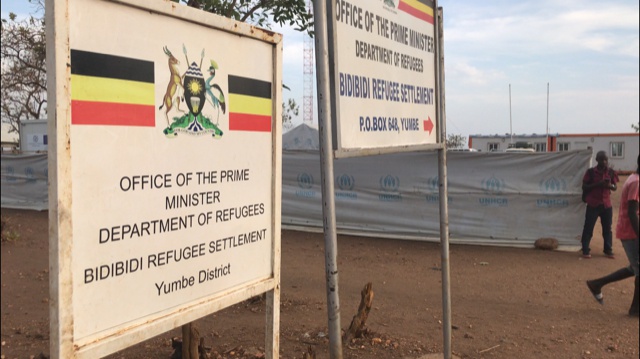
IMAGE: The Office of the Prime Minister has a small office to oversee the 287,000 person site near Yumbe


 Police launch murder probe following ‘brutal and senseless’ death of woman
Police launch murder probe following ‘brutal and senseless’ death of woman
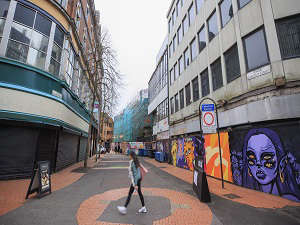 More than 5,000 NI children set to spend Christmas in temporary accommodation
More than 5,000 NI children set to spend Christmas in temporary accommodation
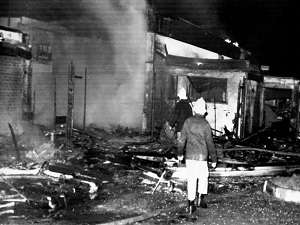 No evidence of police collusion in 1978 La Mon bombing
No evidence of police collusion in 1978 La Mon bombing
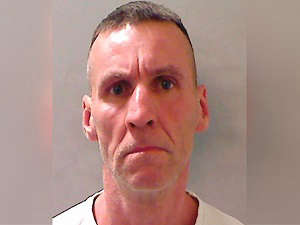 Sex offender who targeted girls online across the UK jailed for 27 years
Sex offender who targeted girls online across the UK jailed for 27 years
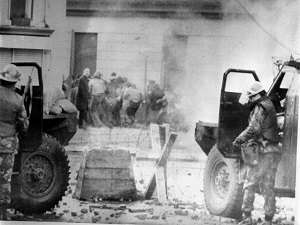 Pre-trial rulings due in Bloody Sunday prosecution of Soldier F
Pre-trial rulings due in Bloody Sunday prosecution of Soldier F